
Бесплатный фрагмент - Pronombres en inglés con ejemplos
Prólogo
Pronombres en Inglés con ejemplos: pronombres personales, demostrativos, posesivos, reflexivos, indefinidos, recíprocos, interrogativos y relativos.
Este libro es para estudiantes de Inglés como segunda lengua (ESL). Contiene todos los pronombres que se usan en el Inglés hablado. Aprenderás a usar los pronombres mediante ejemplos, ilustraciones y ejercicios, en lugar de mediante teoría.
Todas las imágenes utilizadas en este libro se publican bajo una licencia Pixabay License.
¿Qué es un pronombre?
Los pronombres son palabras que se usan para sustituir a nombres o a sintagmas nominales.
Por ejemplo, I, you, he, she, himself, herself, this, that, who, whose, someone, y demás.
Lista de pronombres y adjetivos posesivos usados en este libro
Pronombres personales de sujeto: I, you, he, she, it, we, you, they.
Pronombres personales de objeto: me, you, him, her, it, us, you, them.
Pronombres demostrativos: this, that, these, those.
Adjetivos posesivos (determinantes): my, your, his, her, its, our, their.
Pronombres posesivos: mine, yours, his, hers, its, ours, theirs.
Pronombres reflexivos: myself, yourself, himself, herself, itself, ourselves, yourselves, themselves, oneself.
Pronombres indefinidos: one, ones, no one, nobody, none, nothing, some, any, somebody, anybody, someone, anyone, something, anything, everybody, everyone, everything, both, each, all, either, neither, another, other, others, many, few, little, much, plenty, several, less, more, most.
Pronombres recíprocos: each other, one another.
Pronombres interrogativos: who, whom, whose, which, what, whoever, whichever, whatever.
Pronombres relativos: that, who, whom, whose, which, whoever, whatever, whichever.
I, you, he/she/it, we, you, they
Las palabras I, you, he, she, it, we, you, y they son pronombres personales de sujeto.
I am

Aprende las palabras:
I — yo
man — hombre
woman — mujer
am — soy
a (an) — un/una
Estudia los ejemplos:
I am a man.
I am a woman.
You are
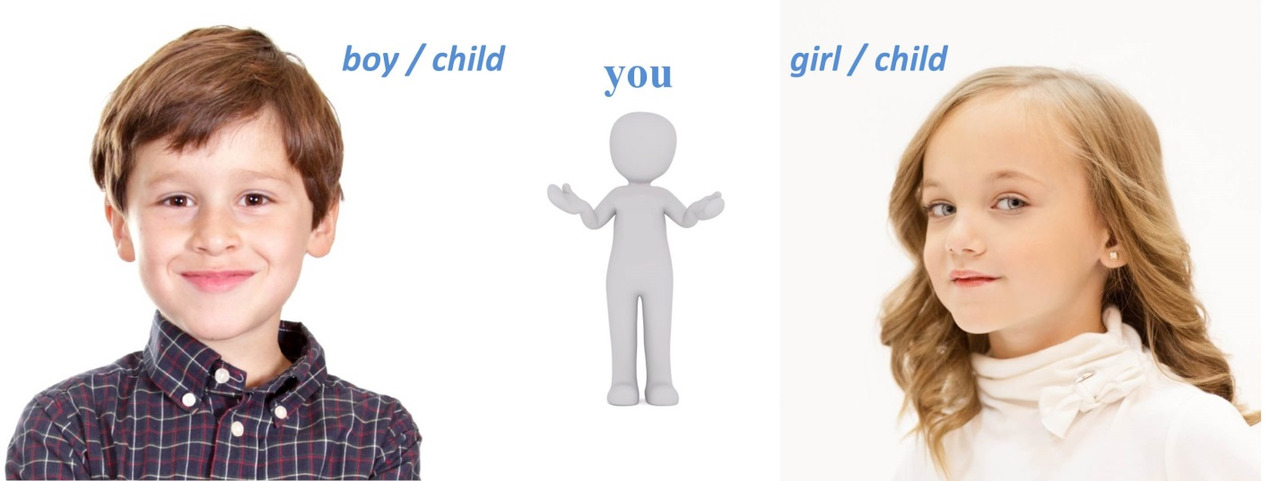
Aprende las palabras:
you — tú
boy — chico
girl — chica
child — niño/a
are — eres
not — no
too — también
Estudia los ejemplos:
You are a boy.
You are not a man.
You are a child.
You are a girl.
You are not a woman.
You are a child, too.
He / she is
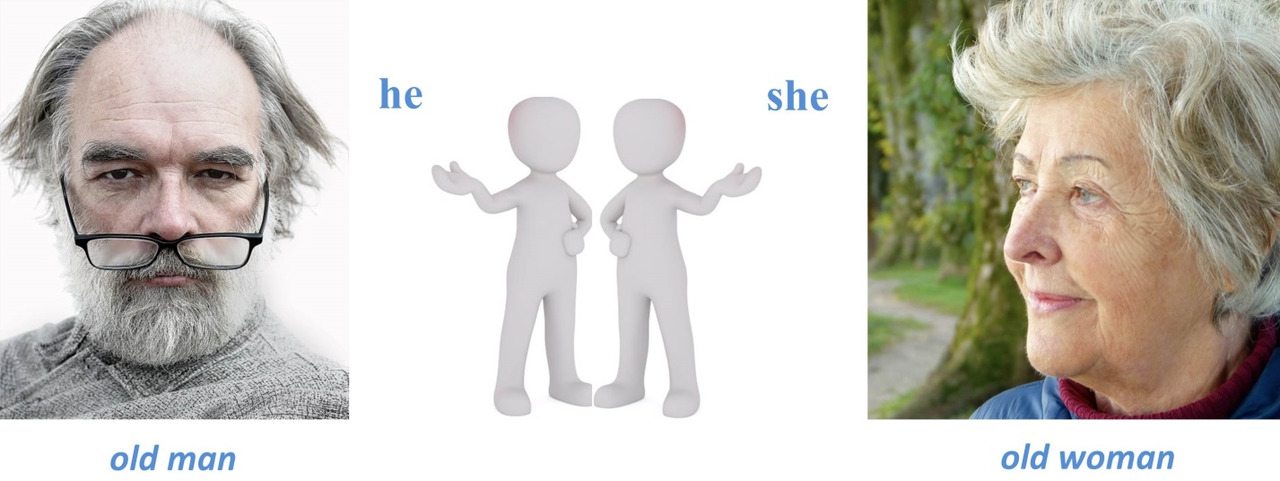
Aprende las palabras:
he — él
she — ella
old — mayor
old man — hombre mayor
old woman — mujer mayor
is — es
Estudia los ejemplos:
He is an old man.
He is not a boy.
He is not a child.
She is an old woman.
She is not a girl.
She is not a child.
It is
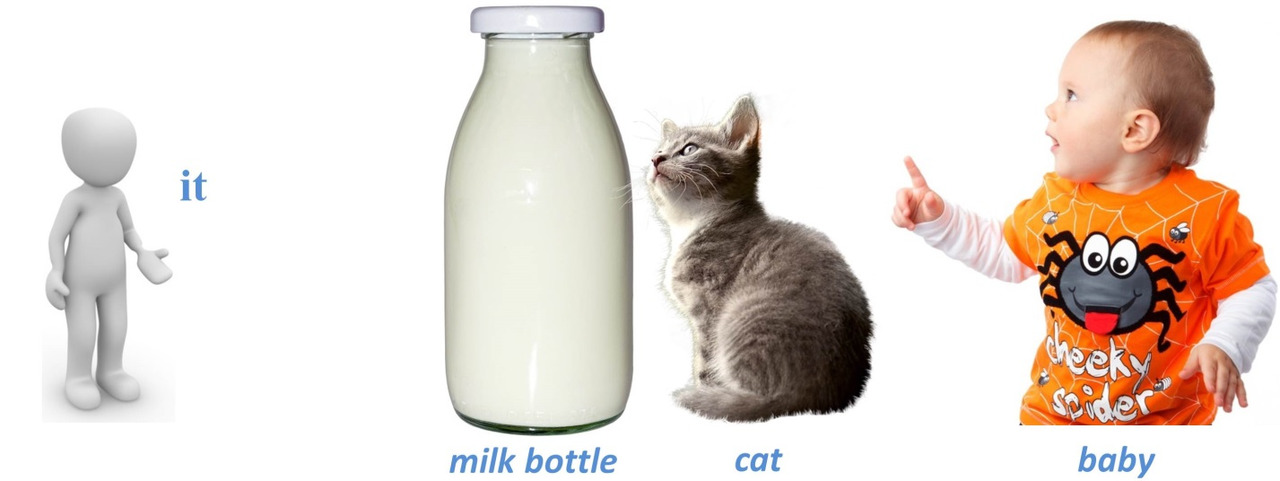
Aprende las palabras:
it — eso
milk — leche
bottle — botella
milk bottle — botella de leche
cat — gato
baby — bebé
Estudia los ejemplos:
It is milk.
It is a bottle.
It is a milk bottle.
It is a cat.
It is a baby.
We are
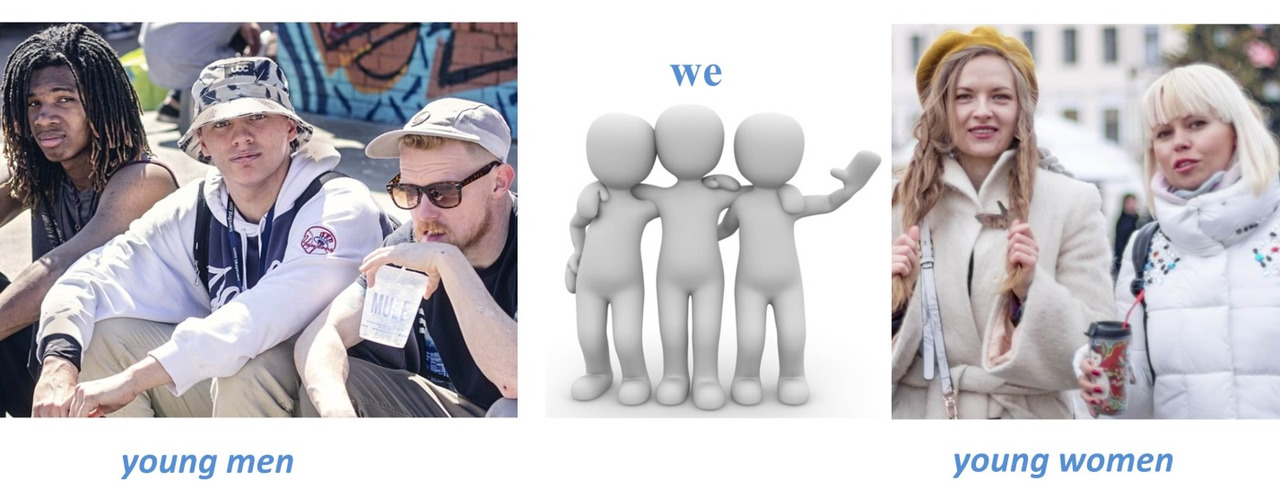
Aprende las palabras:
we — nosotros/as
young — jóvenes
men — hombres
young men — hombres jóvenes
women — mujeres
young women — mujeres jóvenes
Estudia los ejemplos:
We are men.
We are young men.
We are not old men.
We are women.
We are young women.
We are not old women.
You are
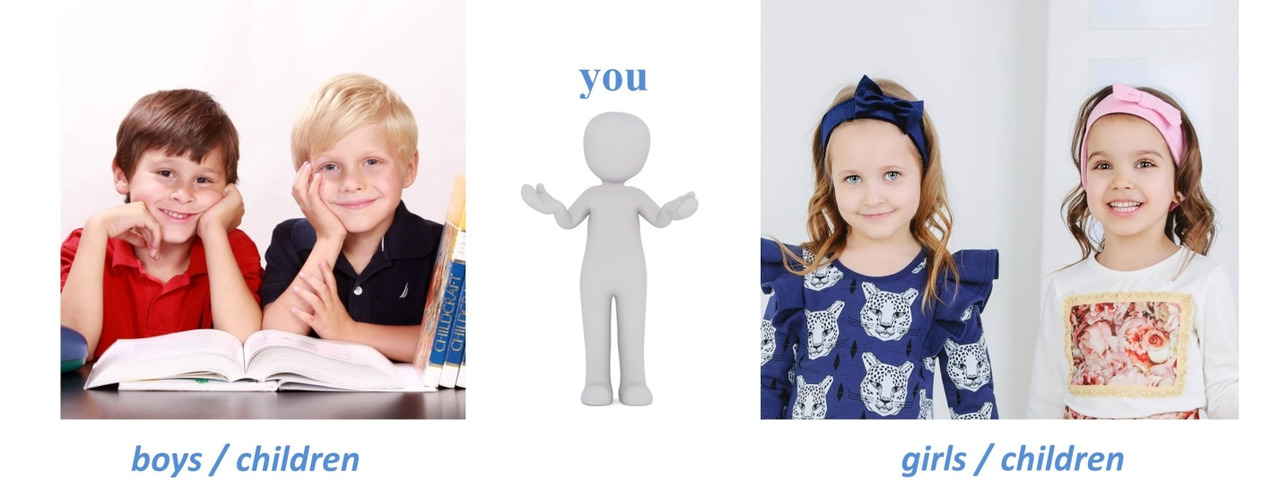
Aprende las palabras:
you — vosotros/as
boys — chicos
girls — chicas
children — niños/as
and — y
Estudia los ejemplos:
You are boys.
You are girls.
You are boys and girls.
You are children.
You are not men and women.
They are
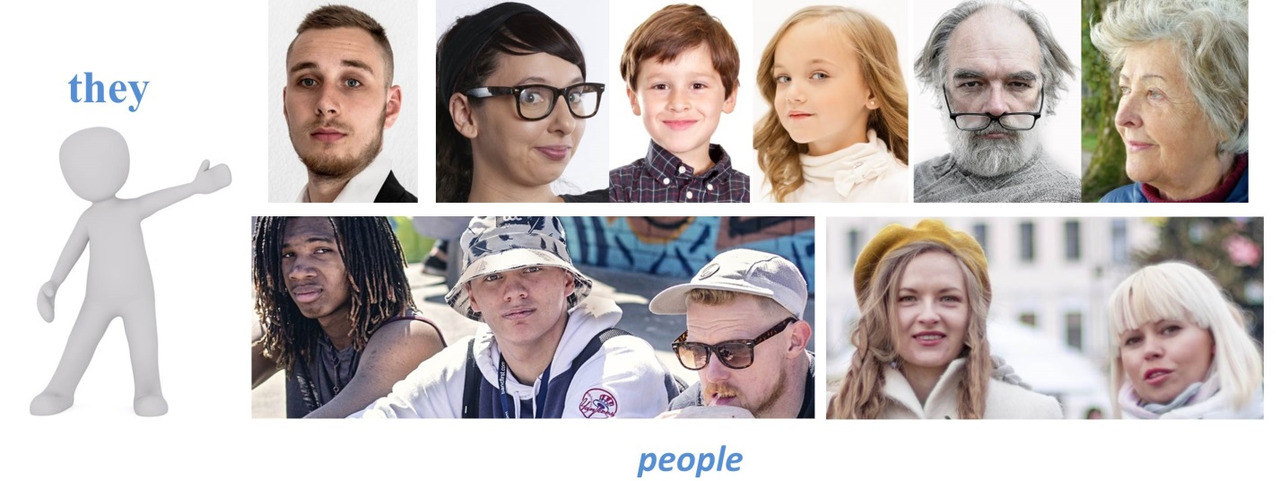
Aprende las palabras:
they — ellos/as
people — gente
Estudia los ejemplos:
They are people.
They are young and old.
They are young and old people.
They are men, women and children.
Revisión: Unidades 1—7
Completa las oraciones.
1. I ____ a man.
2. She ____ a woman.
3. She ____ an old woman.
4. I ____ a woman.
5. It ____ milk.
6. They ______ people.
7. You ______ children.
8. He ____ an old man.
9. ______ are a boy.
10. ____ is a bottle.
11. You ______ girls.
12. It ____ a baby.
13. They ______ young and old.
14. He ____ not a boy.
15. ______ are not a man.
16. You ______ a child.
17. You ______ not men and women.
18. We ______ young women.
19. It ____ a milk bottle.
20. ______ are a girl.
21. She ____ not a girl.
22. We ______ young men.
23. You ______ boys.
24. It ____ a cat.
25. You ______ not a woman.
26. He ____ not a child.
27. You ______ boys and girls.
28. We ______ not old men.
29. She ____ not a child.
30. They ______ young and old people.
31. We ______ not old women.
32. They ______ men, women and children.
Respuestas.
1. I am a man.
2. She is a woman.
3. She is an old woman.
4. I am a woman.
5. It is milk.
6. They are people.
7. You are children.
8. He is an old man.
9. You are a boy.
10. It is a bottle.
11. You are girls.
12. It is a baby.
13. They are young and old.
14. He is not a boy.
15. You are not a man.
16. You are a child.
17. You are not men and women.
18. We are young women.
19. It is a milk bottle.
20. You are a girl.
21. She is not a girl.
22. We are young men.
23. You are boys.
24. It is a cat.
25. You are not a woman.
26. He is not a child.
27. You are boys and girls.
28. We are not old men.
29. She is not a child.
30. They are young and old people.
31. We are not old women.
32. They are men, women and children.
Me, you, him, her, it, us, you, them
Las palabras me, you, him, her, it, us, you, y them son pronombres personales de objeto.
Me
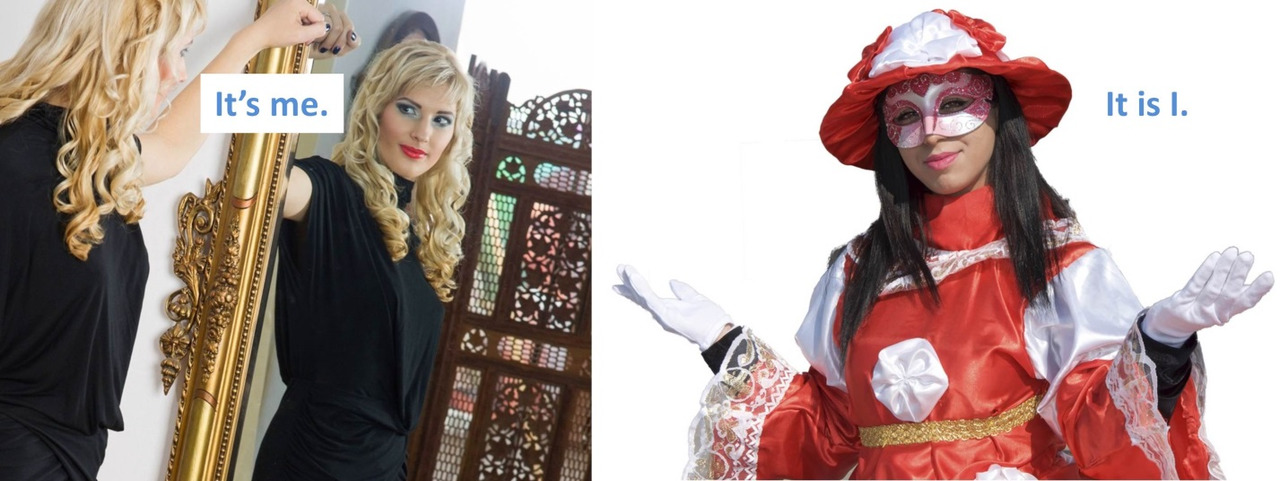
it’s = it is
Aprende las palabras:
me — yo
look — mirar
at — a
look at — mirar a
can — poder
mirror — espejo
recognize — reconocer
in — en
mask — máscara
Estudia los ejemplos:
It’s me. (Inglés informal, uso moderno)
It is I. (Inglés formal, uso antiguo)
(It’s me. = It is I.)
Look at me!
Can you see me?
Can you see me in the mirror?
Can you recognize me?
Can you recognize me in the mask?
You
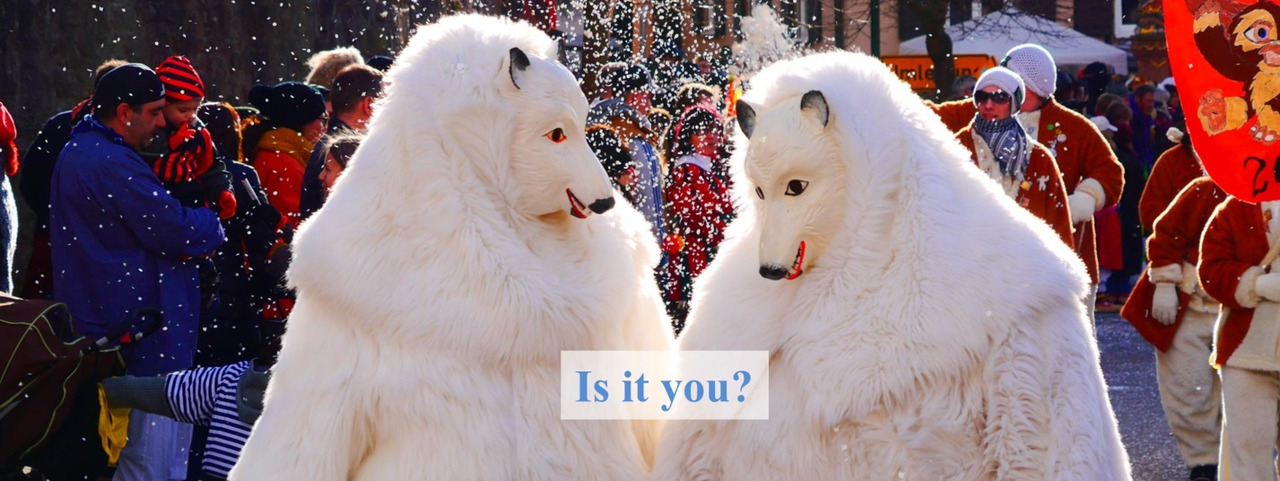
Aprende las palabras:
cannot — no poder
hear — oír
but — pero
yes — sí
Estudia los ejemplos:
Is it you, Jack?
I can see you.
I can hear you.
I cannot recognize you.
I can see and hear you, but I cannot recognize you.
Yes, it is you!
Him
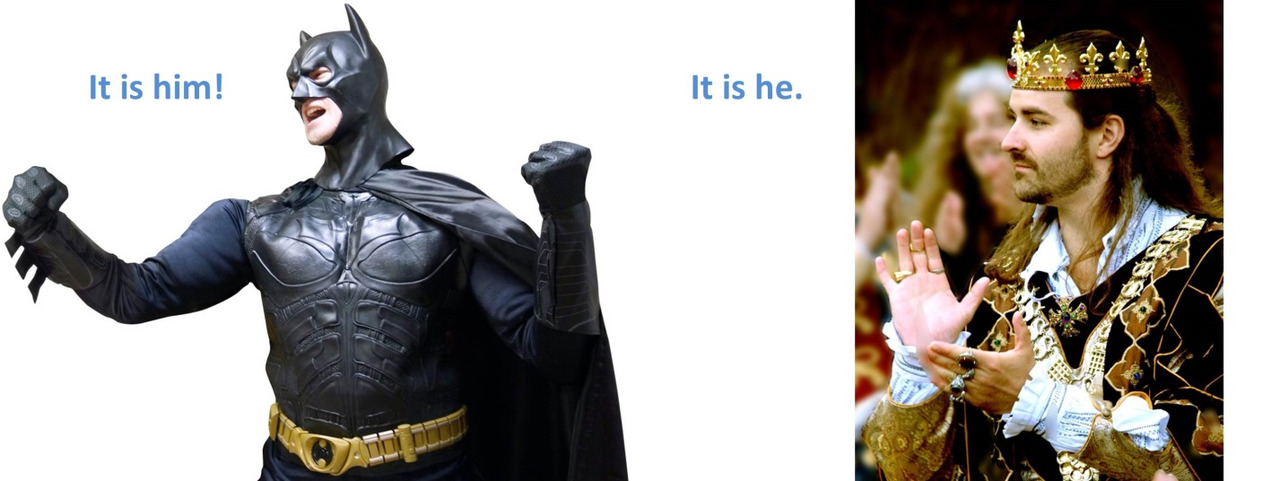
Aprende las palabras:
him — él
king — rey
beat — ganar
compete — competir
with — con
compete with — competir con
disobey — desobedecer
argue — discutir
argue with — discutir con
Estudia los ejemplos:
Is it Batman?
Yes, it is him! (Inglés informal)
Is it King Arthur?
Yes, it is he. (Inglés formal)
(it is him = it is he)
It is Batman.
Can you compete with him?
Yes. I can beat him.
It is King Arthur.
Can you disobey him?
Yes, I can argue with him.
Her
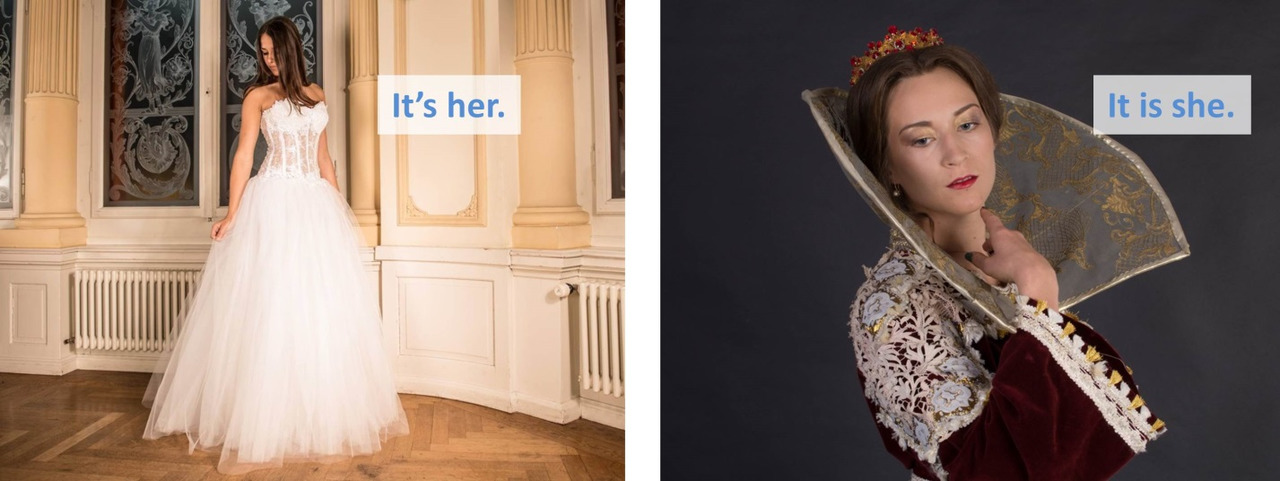
Aprende las palabras:
her — ella
who — quién
bride — novia
queen — reina
no — no
left — izquierda
right — derecha
on — a
on the left — a la izquierda
on the right — a la derecha
do — (verbo auxiliar)
does — (verbo auxiliar tercera persona del singular)
look — mirar
like — gustar
look like — parecerse
admire — admirar
ask — preguntar
Estudia los ejemplos:
Who is the bride? Is it Maria?
Yes, it’s her. (Inglés informal)
Is it Queen Elizabeth?
Yes, it is she. (Inglés formal)
No, it is not she!
(it is her = it is she)
The woman on the left is a bride.
Do you like her?
I admire her.
The woman on the right is not Queen Elizabeth.
She does not look like her.
Ask her who she is!
It
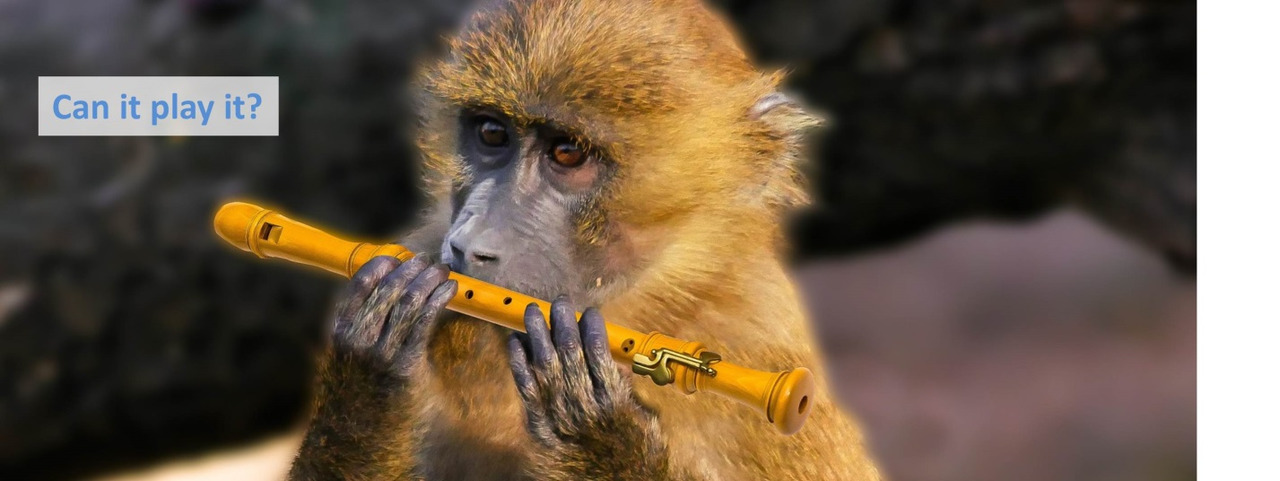
Aprende las palabras:
it — ello
monkey — mono
cute — adorable
hold — sostener
holding — sosteniendo
play — tocar
flute — flauta
Estudia los ejemplos:
It is a cute monkey.
Do you like it?
I like it!
The monkey is holding a flute.
Can the monkey play it?
Can it play it?
The monkey cannot play the flute.
The monkey cannot play it.
It cannot play it.
Us
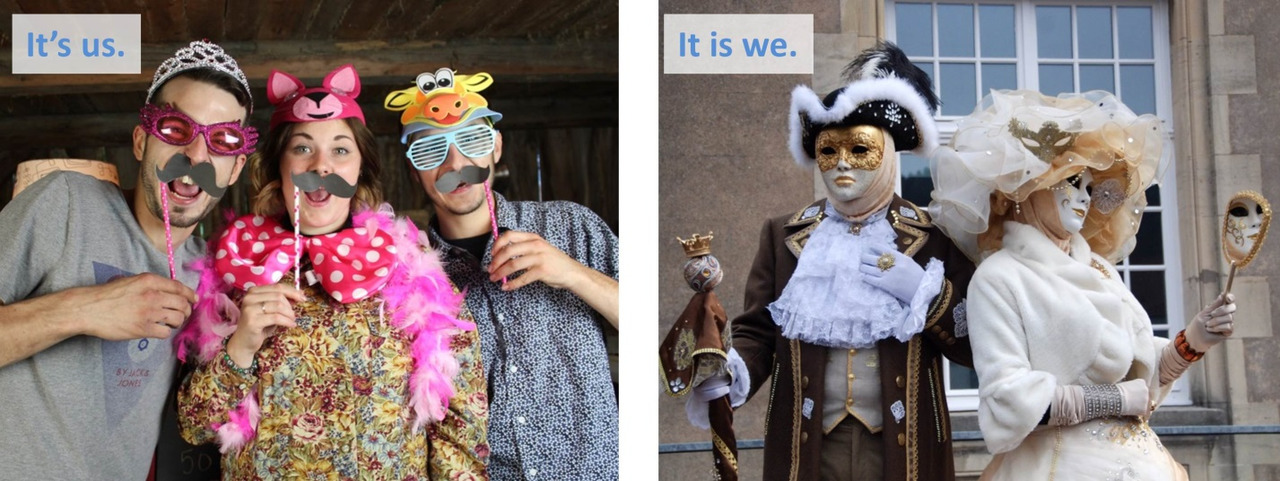
Aprende las palabras:
us — nosotros/as
friend — amigo/a
friends — amigos/as
your — vuestros/as
know — conocer
very — muy
well — bien
Estudia los ejemplos:
It’s us, your friends! (Inglés informal)
It is we, the King and the Queen. (Inglés formal)
(it’s us = it is we)
Look at us!
Can you recognize us?
You know us very well.
Them
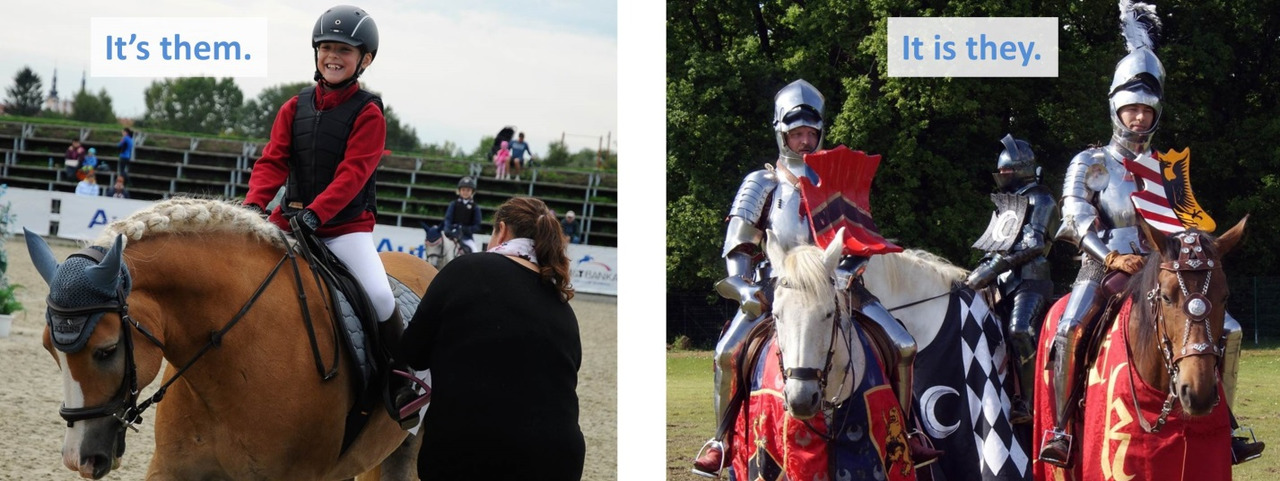
Aprende las palabras:
them — ellos/as
horse — caballo
win — ganar
winner — ganador/a
behold — observar
knight — caballero
support — apoyar
fan — fan
of — de
Estudia los ejemplos:
Look at the horse and the boy.
It’s them who are the winners! (Inglés informal)
Behold the knights!
It is they who are the winners! (Inglés formal)
(it’s them = it is they)
I know them.
Do you support them?
I am a fan of them.
Revisión: Unidades 8—14
Elige la palabra correcta entre paréntesis.
1. It’s (me, I). (Inglés informal)
2. It is (me, I) (Inglés formal)
3. Look at (me, I)!
4. Can you see (me, I) in the mirror?
5. Can you recognize (me, I) in the mask?
6. I can see and hear (you, me, I), but I cannot recognize you.
7. It is (he, him)! (Inglés informal)
8. Can you disobey (he, him)?
9. Yes, I can argue with (he, him).
10. It is (she, her). (Inglés formal)
11. Do you like (she, her)?
12. I admire (she, her).
13. She does not look like (she, her).
14. Ask (she, her) who she is!
15. It is a cute monkey. Do you like (him, her, it)?
16. It’s (we, us), your friends! (Inglés informal)
17. Look at (we, us)!
18. Can you recognize (we, us)?
19. It is (they, them) who are the winners! (Inglés formal)
20. I know (they, them).
21. Do you support (they, them)?
22. I am a fan of (they, them).
Respuestas.
1. It’s me.
2. It is I.
3. Look at me!
4. Can you see me in the mirror?
5. Can you recognize me in the mask?
6. I can see and hear you, but I cannot recognize you.
7. It is him!
8. Can you disobey him?
9. Yes, I can argue with him.
10. It is she.
11. Do you like her?
12. I admire her.
13. She does not look like her.
14. Ask her who she is!
15. It is a cute monkey. Do you like it?
16. It’s us, your friends!
17. Look at us!
18. Can you recognize us?
19. It is they who are the winners!
20. I know them.
21. Do you support them?
22. I am a fan of them.
This, that, these, those
Las palabras this, that, these y those son pronombres demostrativos. También se pueden usar como adjetivos demostrativos.
This/that woman

Aprende las palabras:
this — este/a
that — ese/a
the — el/la
here — aquí
there — allí
another — otro/a
Estudia los ejemplos:
This is a woman.
The woman is here.
She is here.
This woman is here.
That is another woman.
The woman is there.
She is there.
That woman is there.
This/that dog
Бесплатный фрагмент закончился.
Купите книгу, чтобы продолжить чтение.
